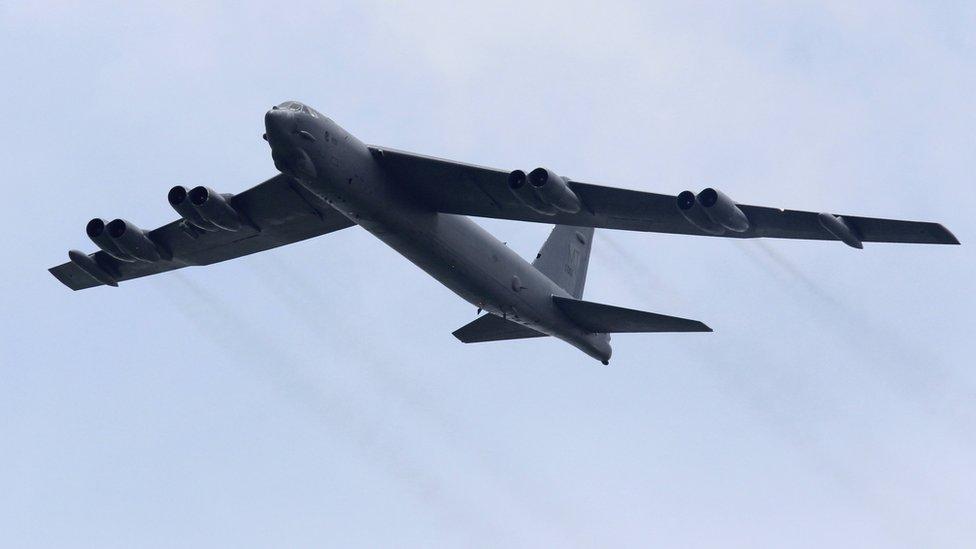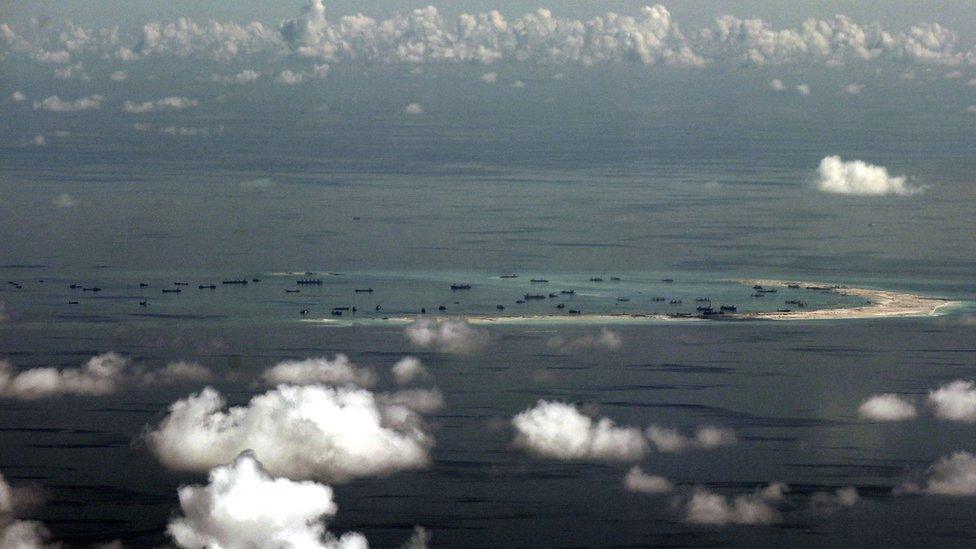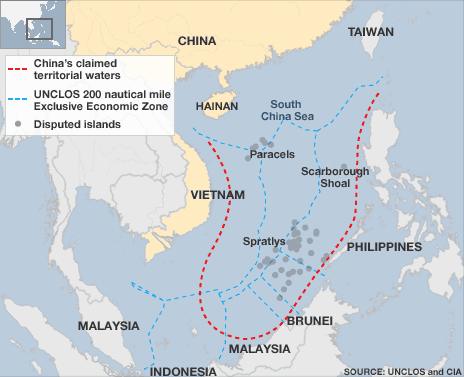US B-52 bombers fly near disputed South China Sea islands
- Published

The B-52 bomber planes, seen here in a file picture, continued the mission despite warnings from the Chinese
Two US B-52 bomber planes have flown near artificial islands built by China in disputed areas of the South China Sea, the Pentagon has said.
Their mission continued despite being warned by Chinese ground controllers.
The incident comes ahead of a visit by US President Barack Obama to a summit in Manila next week, which China's President Xi Jinping will also attend.
China is locked in maritime territorial disputes with several neighbours in the South China Sea.
It claims a large swathe of the resource-rich area and has been aggressively reclaiming land and building facilities on reefs, which the US and others oppose.
The US has said it plans to demonstrate its freedom of navigation principle in the sea, which challenges what it deems to be "excessive claims" to the world's oceans and airspace.
'Received warnings'
The US patrol, which took place overnight on Sunday near the Spratly Islands, was a "a routine mission in the SCS (South China Sea)", said Pentagon spokesman Bill Urban, taking off from Guam and returning there.

The planes flew near the Spratly Islands
The B-52s did not breach the area of sea claimed by China around the islands, the Pentagon said.
Mr Urban told reporters that the planes received two warnings "despite never venturing within 15 nautical miles of any feature".
"Both aircraft continued their mission without incident, and at all times operated fully in accordance with international law," he said.
Last month, the US sailed warship USS Lassen into the 12-nautical mile zone China claims around Subi and Mischief reefs in the Spratly archipelago, angering Beijing.
China's foreign ministry condemned it as "illegal" and provocative.
